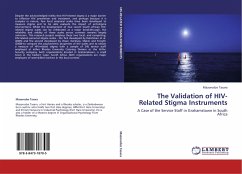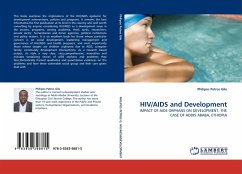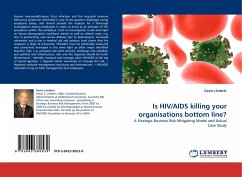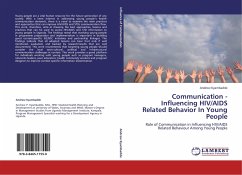
The Validation of HIV-Related Stigma Instruments
A Case of the Service Staff in Grahamstown in South Africa
Versandkostenfrei!
Versandfertig in 6-10 Tagen
39,99 €
inkl. MwSt.

PAYBACK Punkte
20 °P sammeln!
Despite the acknowledged reality that HIV-related stigma is a major barrier to effective HIV prevention and treatment, and perhaps because it is complex in nature, few local empirical scales have been developed to measure stigma and to be able evaluate the impact of anti-stigma interventions. Whilst the development of two recent South African HIV-related stigma scales can be celebrated as a major breakthrough, the reliability and validity of these scales across contexts remains largely unknown. This research project employs these two local, and competing, HIV-related personal stigma scales - t...
Despite the acknowledged reality that HIV-related stigma is a major barrier to effective HIV prevention and treatment, and perhaps because it is complex in nature, few local empirical scales have been developed to measure stigma and to be able evaluate the impact of anti-stigma interventions. Whilst the development of two recent South African HIV-related stigma scales can be celebrated as a major breakthrough, the reliability and validity of these scales across contexts remains largely unknown. This research project employs these two local, and competing, HIV-related personal stigma scales - the first developed by Kalichman et al. (2005) and the second developed by Visser, Kershaw, Makin and Forsyth (2008)-to compare the psychometric properties of the scales and to obtain a measure of HIV-related stigma with a sample of 246 service staff employed at either Rhodes University Catering Division or the Hi-Tec Security company, both organisations located in Grahamstown, a small town in the Eastern Cape, South Africa. Both organisations are major employers of semi-skilled workers in this local context.












